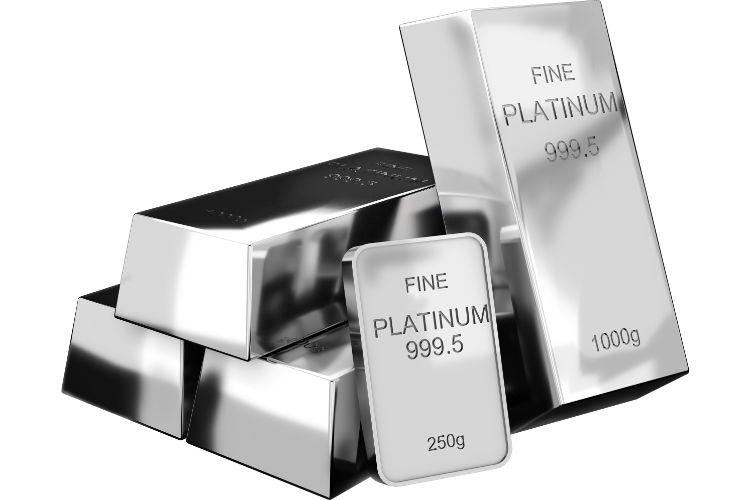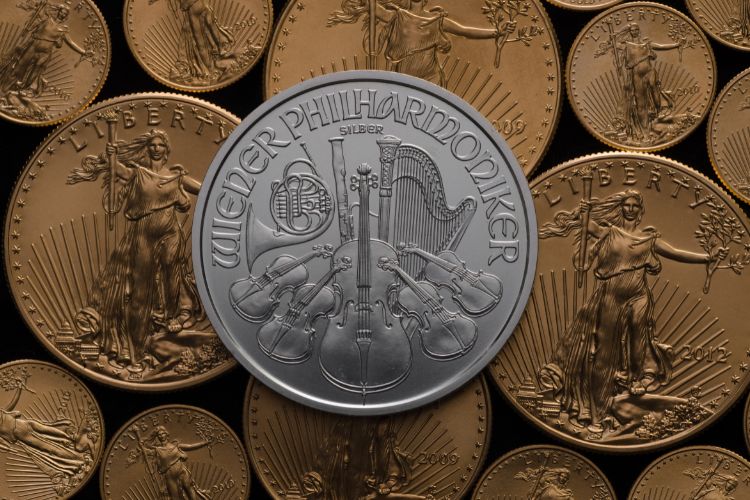Navigating the complex world of precious metals sales and IRS reporting requirements can take time and effort for investors and collectors. The Internal Revenue Service (IRS) has specific guidelines on what constitutes a reportable sale regarding transactions involving precious metals.
However, it is hard to make a complete list of everything that needs to be reported because the IRS rules are not always clear about which coins, bars, and rounds need to be reported.
This article will explore the general guidelines and provide a detailed list of commonly traded precious metal items.
Gold

When it comes to gold, the IRS requires sales reporting, provided the gold is at least 99.5% pure.
This includes:
- Gold bars of any brand that meet the purity requirement in quantities of one kilogram (32.15 troy ounces) or more of gold.
- Gold rounds of any brand that meet the purity requirement in quantities of one kilogram (32.15 troy ounces) or more of gold.
- Specific gold coins in large quantities (25 or more), such as:
- Canadian Gold Maple Leaf coins (1 oz each)
- South African Gold Krugerrand coins (1 oz each)
- Mexican Gold Onza coins (1 oz each)
Silver

In terms of silver, the minimum requirement for reporting is 1,000 troy ounces or more, with a purity of at least 99.9%.
Reportable silver items include:
- Silver bars of any brand that meet the purity requirement.
- Silver rounds of any brand that meets the purity requirement.
- Specific silver coins in large quantities, including:
- Canadian Silver Maple Leaf coins (1 oz each)
- Silver Krugerrand coins (1 oz each)
- Other similar 99.9% pure silver coins in quantities that meet or exceed 1,000 ounces.
Platinum

Platinum sales become reportable when they involve 25 troy ounces or more of at least 99.95% pure platinum.
This encompasses:
- Platinum bars of any brand that meet the purity requirement.
- Platinum rounds of any brand that meets the purity requirement.
- Specific platinum coins in large quantities (25 or more), such as:
- Canadian Platinum Maple Leaf coins (1 oz each)
Palladium

For palladium, the reportable amount is 100 troy ounces or more, with a purity of at least 99.95%.
Reportable palladium items include:
- Palladium bars of any brand that meets the purity requirement.
- Palladium rounds of any brand that meets the purity requirement.
- Specific palladium coins in large quantities (25 or more), like:
- Canadian Palladium Maple Leaf coins (1 oz each)
Additional Specific Coins

- U.S. 90% silver coins (dimes, quarters, and half dollars minted before 1965) are reportable when sold in face value amounts of $1,000 or more.
Exemptions: American Gold Eagles and Silver Eagles

Even though American Gold Eagle coins are a popular way to invest, they usually need to be reported differently than other coins when they are sold in quantities of less than 25 coins.
This is because the IRS has special rules about some coins, like the American Gold Eagle, which are legal tender and do not need to be reported when sold in smaller amounts.
According to the most recent information, both gold and silver American Eagle coins do not have to be reported by brokers on IRS Form 1099-B, no matter how many are sold.
The U.S. Mint makes these coins, which are legal tender bullion coins. They have a special status that keeps them from having to be reported in the same way as other precious metals.
Important Considerations

It is crucial to know that even if the sale of these coins does not require Form 1099-B reporting, taxpayers still need to report any capital gains to the IRS on their tax returns.
The exemption only applies to the broker’s requirement to report the deal on Form 1099-B. It does not affect the taxpayer’s duty to report gains or income.
Tax laws and regulations are subject to change, and nuances or particular circumstances could affect the reporting requirements.
Always talk to a tax professional or the IRS directly for the most accurate and up-to-date information, and ensure you follow the latest tax laws and reporting rules.
Investing in precious metals can be rewarding, but it comes with its own regulatory responsibilities. Investors can confidently navigate these obligations by staying well-informed and seeking expert advice.
